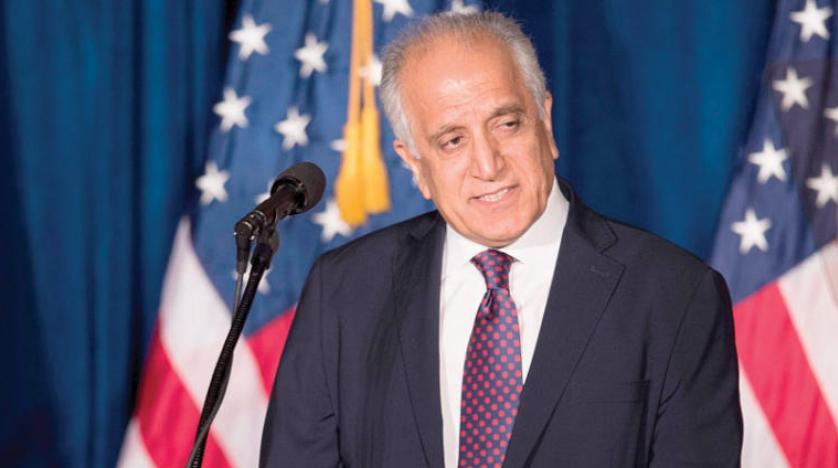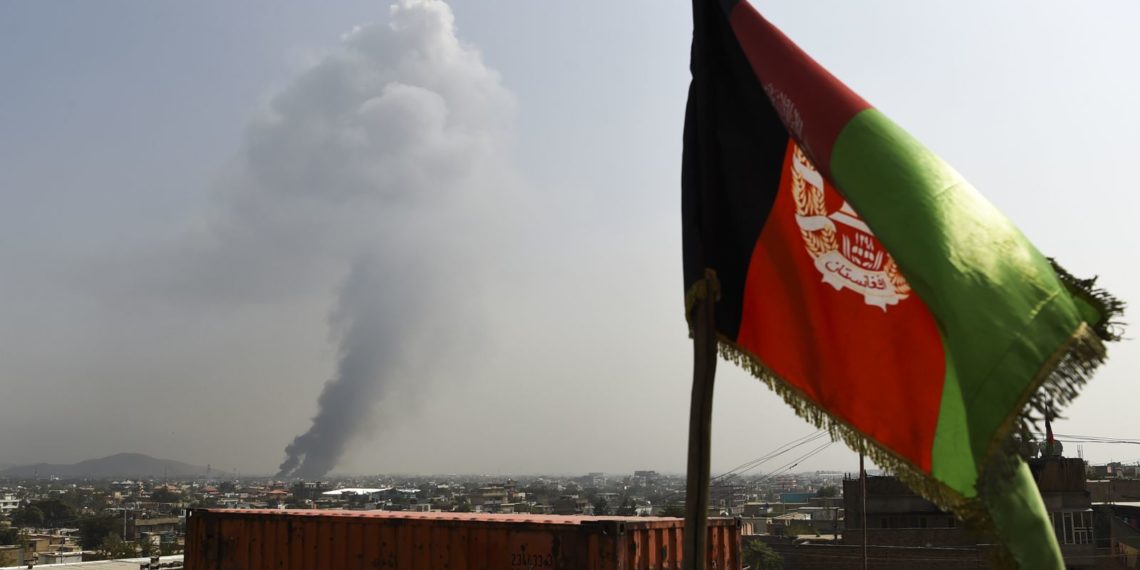Since the emergence of the Taliban in 1994, the terrorist group has continuously proved itself to be untrustworthy. It’s only two months ago that they pledged to “avoid threats, revenges, and conflicting words,” but earlier this month, the group claimed responsibility for deadly attacks in Kabul and three provincial capitals.
The escalating violence comes while the talks between the Taliban and the United States seemed to have reached the final stage.
However, on Monday, President Donald J. Trump suddenly canceled the negotiations and called the peace talks with the Taliban “dead.” Only last week the U.S. and Taliban agreed on a draft deal that could have led to U.S. troops withdrawal from Afghanistan. It remains unclear whether the talks are permanently off or only suspended. Trump did make clear though that he was still thinking about troop pullout.
At this stage, the Taliban is playing various roles for specific purposes. On the one hand, they continue peace talks to show the world that they are a peaceful group that desires to non-violently end the war, while on the other, they mount violence to gain privileges at the negotiating table. At last, the Taliban’s ultimate goal is to overthrow the Afghan government by force and restore their own government.
Trusting the Taliban
The Taliban is taking advantage of both negotiations and war. During the Moscow conference held in February with other Afghan opposition leaders, the Taliban clearly indicated its desire for an agreement based on an inclusive independent Islamic System. They also showed consent to discuss sharing power with other Afghan factions.

The framework agreement announced by U.S. Special Envoy for Afghanistan Zalmay Khalilzad in January, that proposed U.S. troops withdrawal in return for the Taliban guaranteeing that Afghan territory would never be used by terrorists again, is astonishing. Trusting the Taliban in the current circumstances would be a historic mistake.
In the past, the Taliban has broken its promises to the United States over and over again.
In early 1996, Osama bin Laden and many other al-Qaeda leaders entered Afghanistan, with the Taliban offering hospitality. American diplomats Bill Richardson and Karl Inderfurth repeatedly met with Taliban officials to entrust bin Laden to the U.S. or expel him from Afghanistan. The Taliban assured the Americans they had restricted the al-Qaeda leader to ensure he would not be of danger to the U.S., and then said he was no longer in Taliban-controlled territory. However, the Taliban neither expelled nor handed over bin Laden to the United States.
Worse still, al-Qaeda found a safe haven in Afghanistan. From Taliban-controlled areas, the terrorist group orchestrated attacks on American embassies in Kenya and Tanzania in 1998, the USS Cole in Yemen in 2000, and the 9/11 attacks. Even after these latest attacks, the Taliban refused to hand over bin Laden.
Taliban and al-Qaeda
Even after the U.S. overthrew the Taliban government in 2001, the group’s relations with al-Qaeda did not end. The previous and current al-Qaeda leaders, bin Laden and Ayman al-Zawahiri, both swore allegiances to all three consecutive Taliban leaders and recognized each of them as “Supreme Leader of the Muslims.”
Al-Qaeda still considers Afghanistan a crucial county to strengthen its presence. According to a three-month-old report by the U.N. Security Council, al-Qaeda has grown stronger operating under the Taliban umbrella across Afghanistan and is now more active than in recent years.
We have been serving as policemen in Afghanistan, and that was not meant to be the job of our Great Soldiers, the finest on earth. Over the last four days, we have been hitting our Enemy harder than at any time in the last ten years!
— Donald J. Trump (@realDonaldTrump) September 9, 2019
The al-Qaeda and Taliban leadership have frequently emphasized the importance of their alliance, and al-Qaeda members commonly work as military and religious instructors for the Taliban. There are huge possibilities that the Taliban will violate any deal with the U.S. and let al-Qaeda once again reestablish a presence in Afghanistan after U.S. troop withdrawal.
In fact, Afghanistan’s current situation is not much different from when Soviet troops exited in 1988. The Taliban founders, the 1980s mujahideen, were against the Soviet Union but continued fighting against the Afghan government after the Soviets pulled out. Similarly, some Taliban said they would continue the war against the Afghan government after a deal with the United States. As a result, all the gains will be reversed.
US Troops Withdrawal from Afghanistan
The Taliban are ideological fighters who commit suicide bombings for their political cause. They would never change their nature through a peace deal. They have been preparing for years to retake Kabul, and believe the government will collapse instantly if the U.S. stops its support.
The Taliban have constantly demanded the complete withdrawal of the U.S. forces. Their policy appears to persuade the U.S. to speed up troop withdrawal, and then start fighting against the Afghan government, just like their founders did after the Soviets left.

Meanwhile, Trump is eager to fulfill his 2016 campaign pledge to extract troops from Afghanistan as he did with Syria in December 2018. In Syria, the insurgents lost confidence for victory. In Afghanistan, however, the peace talks have allowed the Taliban to be more hopeful for victory. The Taliban is celebrating this success and claims that they defeated two superpowers in the last century while the third, the United States, is also on the verge of defeat.
Trusting the Taliban and withdrawing U.S. troops would not only bring another war in Afghanistan but allow Jihadis across the world to find a safe haven, with possibly the repeat of attacks such as 9/11 as a result. Stopping international and regional powers from supporting the Taliban is the best way to end the 18-year-old Afghan conflict.
Disclaimer: The views and opinions expressed here are those of the author and do not necessarily reflect the editorial position of The Globe Post.























